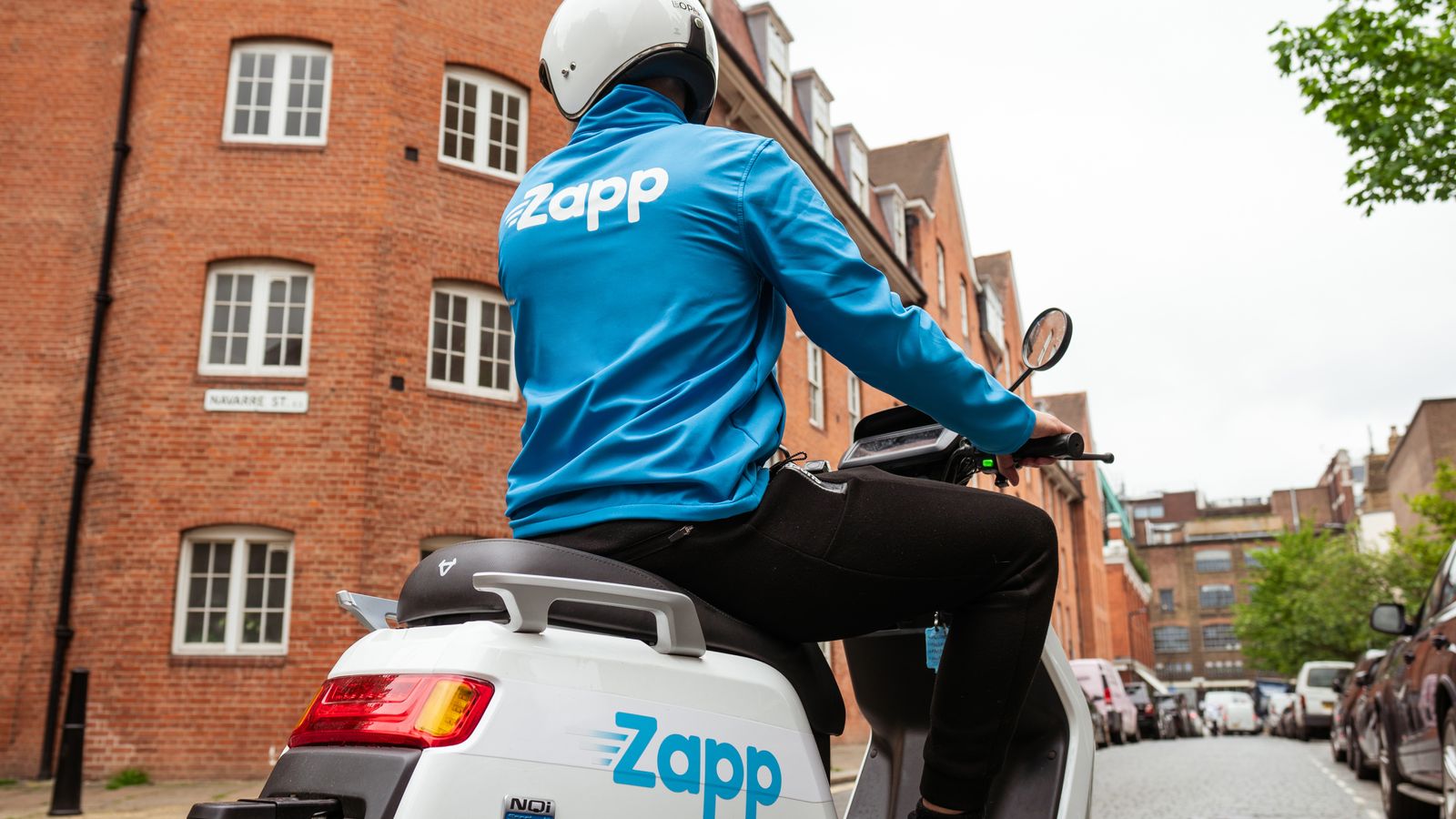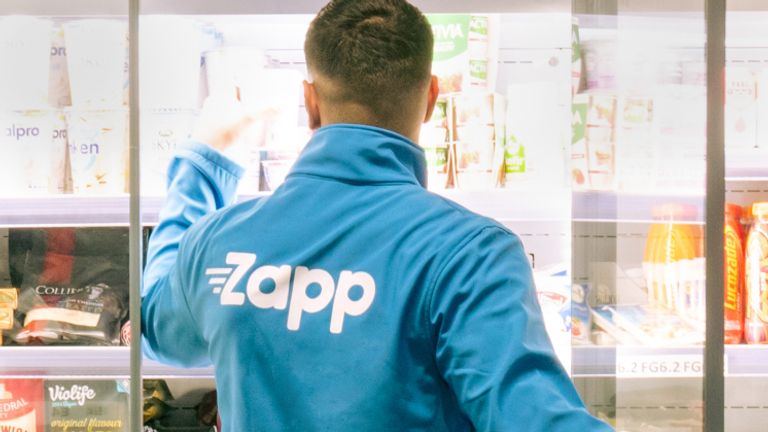Zapp, one of the new breed of rapid grocery delivery apps engaged in a battle for share of British shoppers’ wallets, is opening talks about a new round of funding less than seven months after tapping investors for nearly $100m (£72.5m).
Sky News has learnt that Zapp has hired JP Morgan, the Wall Street banking giant, to advise on its next capital-raising, underlining the rapacious rate at which food delivery platforms are devouring investors’ money.
One investor who was aware of the 15 month-old start-up’s plans said that talks had got underway about its Series B funding round very recently, and was expected to take some time to complete.
They said it was likely that Zapp would be seeking at least another $100m, although the precise figure was unclear on Friday.
News of Zapp’s plans comes just days after Gorillas, a rival, announced that it had raised close to $1bn, with Delivery Hero, one of the world’s largest restaurant delivery apps, leading the round as a new investor.
Getir, an Istanbul-based app which operates in the UK, saw its valuation surge to $7.5bn earlier this year when it raised $550m from investors.
The UK – and London in particular – have become a key battleground for the emerging rapid delivery sector, which is placing a bold bet on consumers’ desire to receive products little more than 10 minutes after ordering them.
Zapp, which was founded in London by Joe Falter and Navid Hadzaad, promises to deliver grocery and other essential items to customers’ doorsteps within 20 minutes, and operates around the clock.
Its “sweet spot” is impulse purchases and urgent-need items such as snacks, drinks, essential groceries, personal health and hygiene goods, and over-the-counter medicines.
Earlier this year, it emerged that leading European venture capital funds including Atomico and Silicon Valley’s Lightspeed had backed the company.
Zapp operates its own dark stores, which exist solely to fulfil online orders, in affluent London areas including Chelsea, Fulham, Hammersmith and Notting Hill.
Other so-called Zappstores – locations from which customer orders are picked – are located in cities such as Manchester and Amsterdam.
During the summer, it struck a deal to back the Champions’ League winners, Chelsea, as part of efforts to differentiate itself in an intensely crowded market.
It is attempting to address consumer concerns about the sustainability of such on-demand platforms by partnering with the food-waste app Olio.
A source close to Zapp said that two-thirds of customer orders were already profitable, and that its business in London was growing at double-digit percentage rates month-on-month.
The rapid delivery sector is, however, already showing signs of strain, with Dija, a UK-based start-up, surrendering its independence and selling to GoPuff of the US.
Weezy, another early-stage player, is working with investment bankers on options including selling itself to a competitor.
Many investors have expressed scepticism about the wisdom of ploughing money into the industry, with some seasoned investors predicting that most of the capital raised in the last 12 months will ultimately be lost as a wave of consolidation takes hold.
A number of other takeovers in the sector are said to be under consideration.
Zapp declined to comment on Friday.

